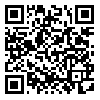Volume 9, Issue 38 (2013)
LIRE 2013, 9(38): 139-152 |
Back to browse issues page
Download citation:
BibTeX | RIS | EndNote | Medlars | ProCite | Reference Manager | RefWorks
Send citation to:



BibTeX | RIS | EndNote | Medlars | ProCite | Reference Manager | RefWorks
Send citation to:
Hypotextual Genrologie. LIRE 2013; 9 (38) :139-152
URL: http://lire.modares.ac.ir/article-41-6896-en.html
URL: http://lire.modares.ac.ir/article-41-6896-en.html
Abstract: (9429 Views)
The first generation of intertextuality was developed with Kristeva
and Barthes and expanded with the second generation theorists’
particularly Jenny and Rifatterre and has been used as a means of
artistic and literary studies. Then, Gerard Genette with transtexuality
design makes a huge leap in the field of the study. Transtexuality
focuses on possible relationships existing among the texts and is of
five types: Intertextuality, Paratextuality, Métatextuality,
Architextuality and Hypertexyuality. The Subject of literary-artistic
genrologie is one of the five topics of interest in transtexuality where
architextuality is one of its five kinds and dedicated exclusively to this
topic. However, in the hypertexyuality too, a substantial portion has
been discussed in genrologie with a specific name called " hypotextual
genrologie ".
The text explores the hypotextual with the study of two text where
presence of first text is attached to the second text. Hypotextuality is
studied with the review of variety of texts that have dérivation
relationship i.e. the second text is taken from the first text. In this
relationship, Gennet identifies six basic types of hypotextual: Pastiche,
Charge, Forgerie, Parodie, Travestissement and Transposition
(permutations). The six types are divided into two major categories of
Imitation and Transformation. The current article attempts to briefly
introduce these kinds of genrologie. The aforementioned genrologie
can be helpful in literary researches especially Persian literature.
and Barthes and expanded with the second generation theorists’
particularly Jenny and Rifatterre and has been used as a means of
artistic and literary studies. Then, Gerard Genette with transtexuality
design makes a huge leap in the field of the study. Transtexuality
focuses on possible relationships existing among the texts and is of
five types: Intertextuality, Paratextuality, Métatextuality,
Architextuality and Hypertexyuality. The Subject of literary-artistic
genrologie is one of the five topics of interest in transtexuality where
architextuality is one of its five kinds and dedicated exclusively to this
topic. However, in the hypertexyuality too, a substantial portion has
been discussed in genrologie with a specific name called " hypotextual
genrologie ".
The text explores the hypotextual with the study of two text where
presence of first text is attached to the second text. Hypotextuality is
studied with the review of variety of texts that have dérivation
relationship i.e. the second text is taken from the first text. In this
relationship, Gennet identifies six basic types of hypotextual: Pastiche,
Charge, Forgerie, Parodie, Travestissement and Transposition
(permutations). The six types are divided into two major categories of
Imitation and Transformation. The current article attempts to briefly
introduce these kinds of genrologie. The aforementioned genrologie
can be helpful in literary researches especially Persian literature.
Subject:
Farsi language
Received: 2012/11/7 | Accepted: 2013/02/8 | Published: 2013/02/19
Received: 2012/11/7 | Accepted: 2013/02/8 | Published: 2013/02/19
| Rights and permissions | |
 |
This work is licensed under a Creative Commons Attribution-NonCommercial 4.0 International License. |






